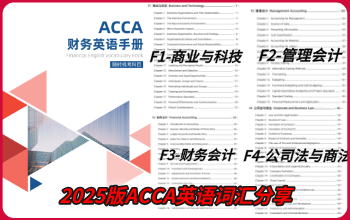
P1 Exam Tips March 2016
Kaplan
Each P1 paper offers 4-6 marks for displaying professional skills,which can easily be the difference between a pass and a fail.The marks are available for both format and the tone and style of your answer,where you may have to prepare a speech or write a letter on behalf of the Board addressing specific concerns.Take a look at the Article of 24 August 2009 for more guidance and some great hints on style.
P1 is a very wordy paper,and the examiner wants to ensure that you have a good grasp of the theories behind the questions,but also that you can successfully apply the theories to given scenarios.Therefore,it is very easy to get lost within a question if your layout and approach to a question is poor.
A good approach is to apply 3 rules in your answer:
Introduction–this should be very short,but can help you get over any‘writers block’.It might include a read back of the question,or a definition of the subject matter(for example,if the question asks for the roles of NED’s,start by very quickly defining what an NED is)
Theory–this section will show the examiner that you actually understand the issue being questioned,again,as with the introduction,this should really be kept short,it can be a section quote from the code,or a reference to an author(Cadbury or Greenbury et al).
Application–This will be the main bulk of your answer and should relate directly to the scenario.This is often the most difficult section of the answer,but should be made easier by the use of the introduction and theory sections.
In addition remember the golden rules of written questions:
- Plenty of white space
- Headings as required
- Short punchy meaningful paragraphs
Following are some of the famous topics that were tested in past
- Corporate governance critique and improvements.
- Effective internal control systems,reporting within differing jurisdictions.
- Influence of and intervention by institutional investors.
- Diversification of Board
- Function and importance of internal audit.
- Risk definition,analysis of risk and the role of the Board of Directors.
- Risk correlation and strategies for management of such risks.
- Ethical standpoints and their application to business decisions.
- Corporate codes of ethics critique and improvements.
- Tucker’s ethical decision making model.
- Social and environmental footprint.
- Sustainability accounting.
- Integrated Reporting
- Conflict of interest and independence
- Corporate Social Responsibility(CSR)
BPP
Coming Soon
LSBF
Coming Soon
Beckers Professional
Coming Soon
First Intuition
Coming Soon
Open Tuition
Coming Soon
MM University



 考前TIPS
考前TIPS
 发布时间:2016-10-27
发布时间:2016-10-27


 复制本文链接
复制本文链接 模拟题库
模拟题库

 323
323

























